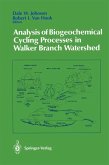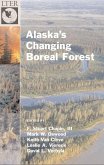An important consequence of reservoir creation is the
production and bioaccumulation of neurotoxic
methylmercury through the food web into fish. The
FLooded Upland Dynamics EXperiment (FLUDEX) at the
Experimental Lakes Area in NW Ontario tested the
hypothesis that methylmercury production in
reservoirs is related to the amount and
decomposition of flooded organic matter. From
1999-2001, three upland forests that varied in the
amounts of organic carbon stored in vegetation and
soils were flooded from spring to autumn with low
organic carbon, low methylmercury water pumped from a
near-by lake. Within the framework of the FLUDEX,
this study examined whole-reservoir rates of
methylation or demethylation based on net
methylmercury exports from reservoirs and
methylmercury pools in soils, periphyton,
zooplankton and fish. This whole-ecosystem scale
research was complemented with two smaller studies
designed to examine the process of mercury
methylation in reservoirs. This study can assist
hydroelectric utilities in making informed decisions
about site selection for future reservoir
development to reduce mercury contamination of
reservoir fisheries.
production and bioaccumulation of neurotoxic
methylmercury through the food web into fish. The
FLooded Upland Dynamics EXperiment (FLUDEX) at the
Experimental Lakes Area in NW Ontario tested the
hypothesis that methylmercury production in
reservoirs is related to the amount and
decomposition of flooded organic matter. From
1999-2001, three upland forests that varied in the
amounts of organic carbon stored in vegetation and
soils were flooded from spring to autumn with low
organic carbon, low methylmercury water pumped from a
near-by lake. Within the framework of the FLUDEX,
this study examined whole-reservoir rates of
methylation or demethylation based on net
methylmercury exports from reservoirs and
methylmercury pools in soils, periphyton,
zooplankton and fish. This whole-ecosystem scale
research was complemented with two smaller studies
designed to examine the process of mercury
methylation in reservoirs. This study can assist
hydroelectric utilities in making informed decisions
about site selection for future reservoir
development to reduce mercury contamination of
reservoir fisheries.








